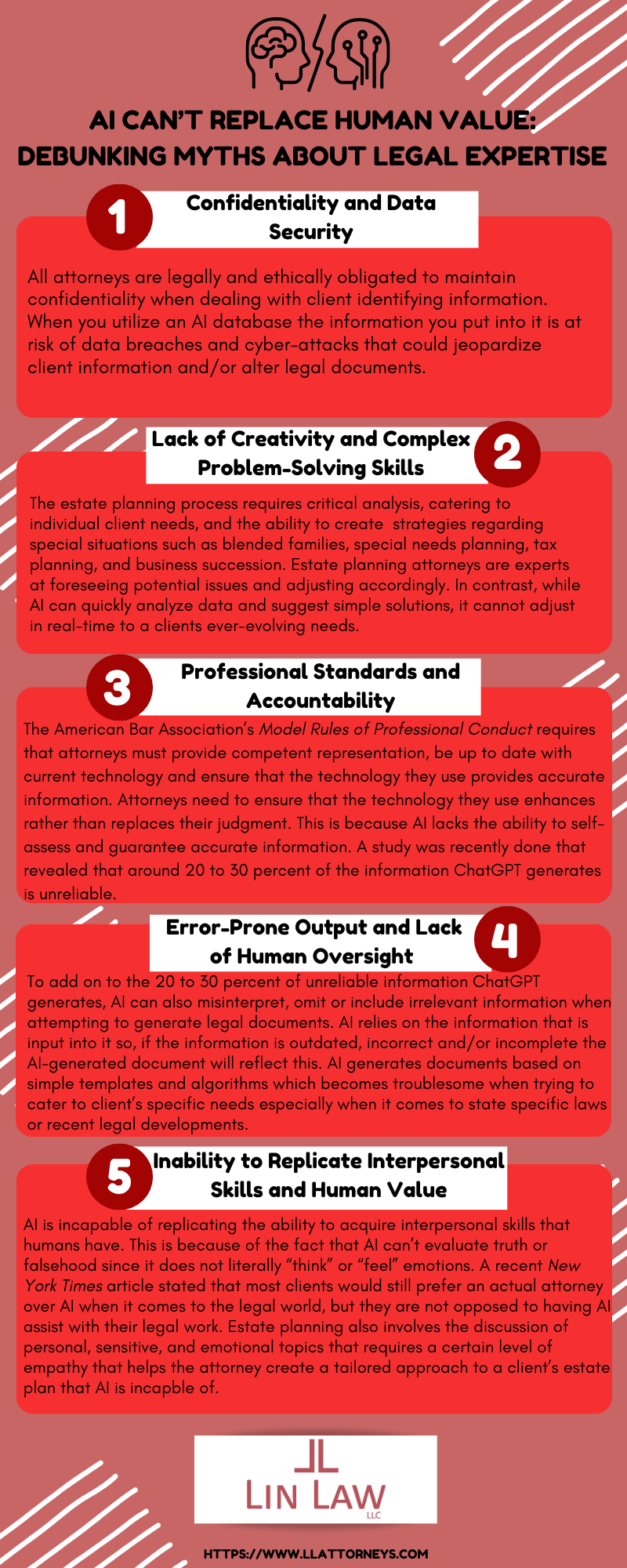In light of artificial intelligence’s (AI) present-day developments, more specifically, in regard to the context of recent claims that AI might replace human professionals, this infographic features critical weaknesses and shortfalls of AI in relation to estate planning practices. Additionally, this serves as a reminder that while AI is an impressive and seemingly all-encompassing tool that it ultimately can’t replace human value that is essential to the intricate practice of legal work. As of right now, it is impossible to completely rely on AI to create legal documents because it would require the client’s informed consent. Although in the near future within the legal world, AI should be able to assist with drafting, analyzing data, and increasing the efficiency of these tasks. It is important to address the broader conversation regarding AI’s role in the workforce, as it could replace certain low-skilled jobs by making routine tasks automated, however, this will ultimately drive the demand for higher-skilled professionals to refine their own expertise and work together rather than against AI to enhance their practice. The infographic portrays how AI does not have the ability to make ethical decisions, interpret complex legal issues (i.e., state-specific laws, individualized tax planning, court interpretation, etc.), and/or provide empathetic guidance.
Ultimately, AI didn’t attend law school and does not have adequate comprehension of legal principles or the essential moral compass that human lawyers acquire. All in all, the future of work in the legal world isn’t about whether AI will replace human professions but rather how human professionals can utilize AI as a tool to enhance their abilities. The future lies in collaboration, where attorneys use AI as a tool rather than a replacement to ensure that legal work is kept confidential, accurate, caters to each client’s individual needs, and is, most importantly, legally sound and enforceable.

